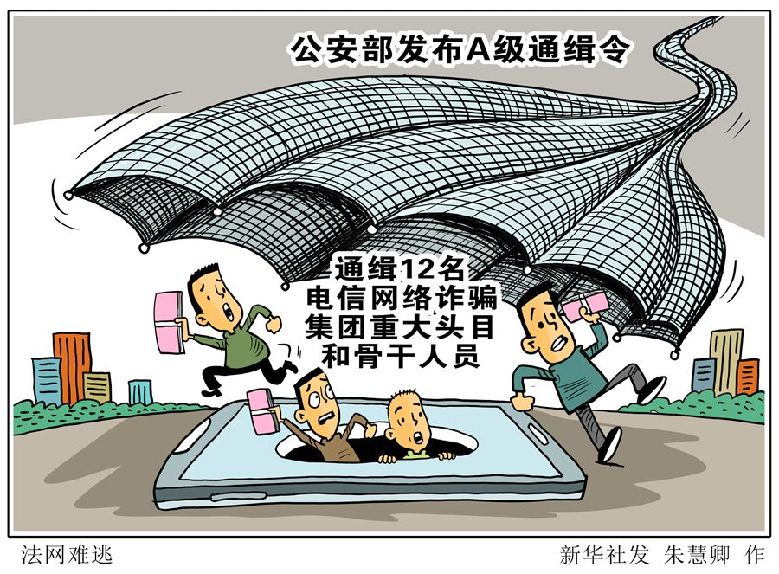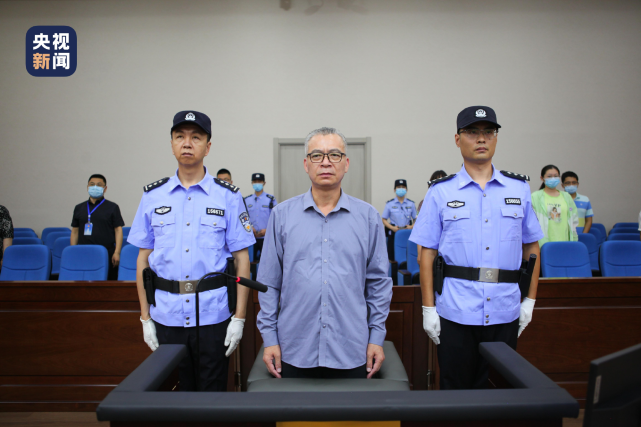Empower the construction of digital government with the rule of law
Author:China Social Sciences Network Time:2022.08.11
In August 2021, the Central Committee of the Communist Party of China and the State Council issued the "Outline of the Implementation of the Construction of the Government of the rule of law (2021-2025)", and for the first time, the innovative concept of "digital rule of law government" was proposed. In June 2022, the State Council issued the "Guiding Opinions on Strengthening the Construction of Digital Government", which clearly stated that it is necessary to accelerate the improvement of the framework system that is compatible with the construction of the digital government. It can be seen that in the process of comprehensively promoting the construction of the digital government, the rule of law should be integrated with the depth of the technical dimension and the same frequency resonance.
Promote the practice requirements for digital government construction
From the current practice, the government's digital transformation often has a one -sided emphasis on the effectiveness of technical empowerment. The important role of the rule of law construction has not fully played in the guarantee of the changes in digital government. tension. Specifically, advancing the construction of digital government needs to focus on the following aspects.
The first is to improve the top -level design of platform system planning. The primary task of digital government reform is usually to develop information business systems and build digital government affairs platforms. Through the interoperability between systems and the combination of platforms, the data value is fully released, and governance efficiency is highlighted. However, in the practice of advancing the change of digital government, often lack of systematic and long -term top -level design work. This aspect is reflected in the overall construction system of the digital government reform. The integration and improvement of the relevant policies involved in the digital government cannot be carried out. The lack of top -level design is especially reflected in the field of government -enterprise cooperation. How to locate the rights and obligation boundaries of both government and enterprises, facing many legal challenges.
The second is the supply standard of unified administrative services. On the basis of the digital transformation of government such as the process of full matters and full -loop operations, the integration model of government affairs that interacts with virtual dual -platform interactions has gradually formed. However, due to the asymmetric information between the organizers of the digital government reform and the approval person, online and offline matters have collaborated to handle a unified directory structure system, that is, standards for online and offline business of the same thing, conducting guidelines, processing processes, processing processes The lack of accurate and systematic business processing catalogs have caused government services to reduce the effectiveness of service reform due to lack of standardized and unified supply standards. At the same time, the differences in the development of digital technology in different regions have also brought difficulties to the standardization of government data. Data survey guidelines, data storage formats, etc. are often inconsistent.
The third is to establish a scientific government service evaluation index element system. At present, many regions lack an effective mechanism for the evaluation of the people's satisfaction into the effectiveness of government reform, and have not yet formed a government digital transformation system for scientific systems. This is mainly reflected in the disconnection of the assessment indicators from the government service work, insufficient quantification of evaluation indicators, and the effectiveness of the performance evaluation of third -party performance. The formulation of evaluation indicators of scientific systems, fully reflecting the people -centered government services is an important aspect of digital government construction.
The fourth is to strengthen the supply of data rights protection. In the digital age, some enterprises that master digital technology use the advantages of digital governance to obtain massive data. Relying on sensors, positioning systems, crawler technology and other accurate and quantitative analysis of users' interests and emotional preferences. The power that is dominated by the monopoly of digital technology on the monopoly of digital technology put forward higher requirements for the "digital rights" of citizens who are at the other end of the data relationship. Insufficient supply of personal data rights protection is one of the important factors of the current region -based digital government change. Although "personal information is protected by law" has been included in Article 1034 of the Civil Code, the integration of the elements of rule of law in which the law of rule of law is incorporated. Still insufficient. Especially the emergence of the "gray industry" of personal data as the content of the transaction has caused citizens' control of personal information to weaken, and strengthening the protection of personal data rights constitutes the inherent requirements of the rule of law construction of the digital government.
Practical path for the rule of law of the digital government
After all, technology is just a tool for helping the government's digital transformation. To achieve the improvement of government governance, it is necessary to use the rules and systems to effectively prevent possible "technical autocracy", and then comprehensively form the use of the principle of rule of law to guide the use of technical use and digital tools with digital tools. Promote a virtuous cycle of administration in accordance with the law. Therefore, to explore the path of the rule of law of the digital government, it is necessary to start with the four dimensions of digital technology legislation, government affairs standard construction, determination of cooperation responsibilities, and data security protection to build a stable system for the reform of the digital government in all aspects of the rule of law.
The first is to improve the digital legislation of "people -centered" by the rule of law. In recent years, the Party Central Committee, the State Council, and the relevant ministries and commissions have successively issued a number of policy documents on digital government. On the whole, these policies involve related content from the development of digital government from different angles, but few people systematically explain them. Therefore, it is urgent to formulate the overall planning and action strategy of the development of the digital government from the national level, clarify the strategic ideas and overall paths of my country's digital government reform, etc., and provide policy guidelines for digital development in various areas. Of course, high -quality legislation needs to adhere to the concept of "people -centered", introduce the value orientation of democracy, and highlight the protection of personal data rights. On the basis of the basic legal system, it is necessary to strengthen the relevant provisions of the relevant provisions of the data security risk emergency in the Capital Corporation of the Emergency. Sexual specification guidelines. The second is to promote the establishment of the standardized system of government service data based on the rule of law. The effectiveness of the digital rule of law government is not only determined by the willingness and ability of the government to learn digital technology, but also depends on the regulatory ability of the digital technology itself. As one of the core elements of government digital technology, government data often blocks the process of changing digital government changes due to the splitting between it and the differences between the standards between different regions. Therefore, in -depth promotion of the construction of a digital rule of law, it should focus on digital technology itself, and use the standardized processing technology of government data to achieve continuous flow between data elements. The first is to build a unified government affairs big data platform. Formulate the list of government service items and codes. Based on the principle of "unified mining and sharing", standardize the setting data structure standards, data sharing standards, data storage standards, and data governance standards to ensure that the construction of digital government is in the direction of standardization and synergy in digital government Essence The second is to build a standardized system for disclosure of government data. On the one hand, it improves the standardization of government affairs public issues, and is based on the standard directory of preparation of government data disclosure. On the other hand, improve the standardization of government affairs channels, and effectively regulate channel construction and data release from two dimensions of online and offline.
The third is to clarify the duties of the digital government's implementation of cooperation governance by the rule of law. Digital technology -driven government organizational structure has also changed, and it will inevitably have a certain impact on the transformation of governance thinking. The technology breaks through the long -term "boundary thinking", reshape and gradually form a governance thinking of open cooperation. Whether at the level of theoretical logic or practical experience, it has been indicated that cooperation governance is an effective path to build a digital rule of law government and promote the change of digital government. In view of this, the first is to incorporate cooperation and governance into the government's legal duties. The power enjoyed by government departments is not only a kind of power, but also a responsibility. The cooperation governance is clearly stated as a specific responsibility of government agencies in the manner of rule of law, not a way to choose independently. The second is to clarify and clarify the relationship between government and enterprises. On the basis of solving legal issues such as the legal relationship positioning and the boundaries of rights and obligations, the incentive rule of law operation method is used to maintain the stable relationship of government -enterprise cooperation governance. It is regarded as an authorized incentive.
Fourth, the construction of related systems for strengthening data security protection is based on the rule of law. The digital age is an era of frequent risks, especially the various risks caused by data flow, which has seriously threatened personal rights and national security. Therefore, it is necessary to strengthen the construction of data security protection, adopt a classified and classified data security governance model, accurately evaluate the sensitivity level based on data mapping relationships and storage methods, reasonably determine its open attributes, and then formulate differentiated protection strategies. In order to ensure the confidentiality and authenticity of the data in the life cycle, the corresponding prevention mechanism should be constructed in various links such as data collection, data processing, data release, data application, and data destruction. For example, in the data processing phase, the data security review system should be constructed, which can not only use the intelligent algorithm to conduct security review of the obtained data, but also introduce expert demonstrations in the review procedure for professional evaluation; in the data release stage, the data must be constructed to build data. The transmission protection system determines the differentiated data transmission rules based on the data application attributes and security levels, so as to select the corresponding transmission channels, thereby ensuring the security and credibility of the data transmission process.
(This article is the bidding project of Suzhou University with Chinese characteristics and urbanization research center, new urbanization and social governance collaborative innovation centers, "Urban Grass -level" Internet+Government Services' Operation Dilemma and Optimization Path "(22CZHB003) )
(Author Unit: School of Political and Public Management of Suzhou University and Soochow Smart Tank)
Source: China Social Science Network-Journal of Social Sciences of China
Author: Dong Xiaowen Hu Wen
- END -
The Ministry of Public Security issued the major leader and backbone personnel of 12 telecommunicati

Xinhua News Agency, Beijing, June 9th (Reporter Xiong Feng) The reporter learn...
Meng Yongshan, the former Attorney General of the Qinghai Provincial People's Procuratorate, was sentenced to 11 years in prison

On July 12, 2022, the Inner Mongolia Autonomous Region Chifeng City Intermediate P...